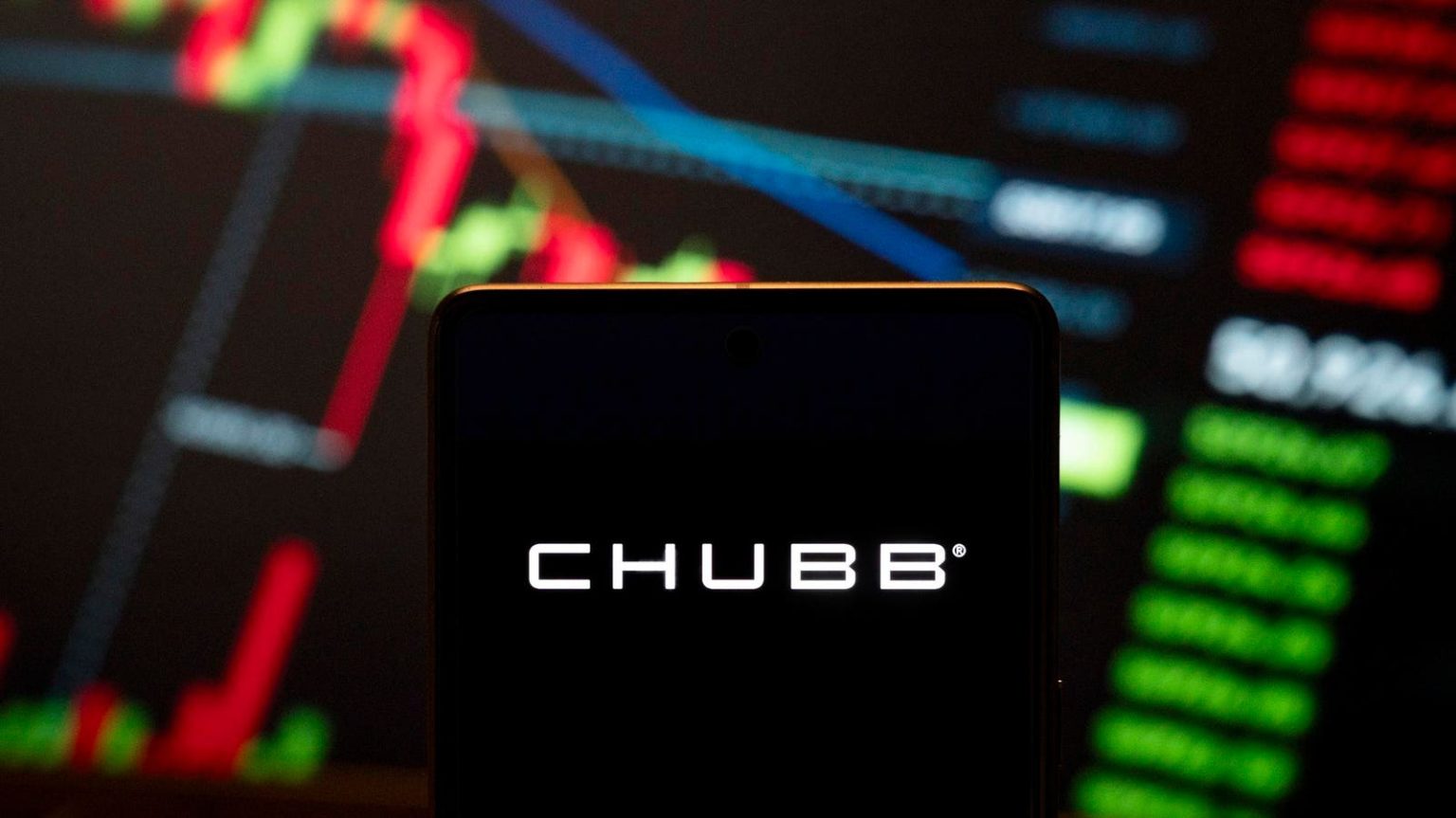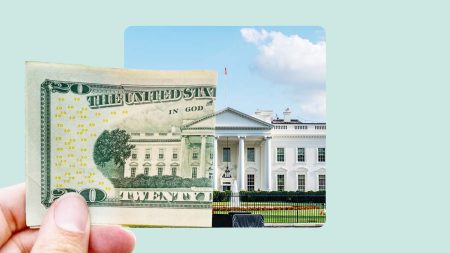Synergies between the two companies are likely to rock the property and casualty insurance industry
By Horse Poor Investor
Summary
- Berkshire Hathaway revealed its 6.40% stake in Chubb on May 15.
- Warren Buffett has had a long-term affinity for the insurance business because of its “Collect-Now Pay-Later” business model.
- Buffett’s interest in Chubb may have arisen due to various qualities, including a well-orchestrated 2016 merger and business practices that complement the Berkshire Hathaway insurance portfolio.
- Synergies between the two companies may change the trajectory of the property and casualty insurance business.
On May 15, Berkshire Hathaway Inc. (BRK.A, Financial) (BRK.B, Financial), which has been recently stingy about spending investment dollars and had divested long-held positions in Johnson & Johnson (JNJ, Financial) and Proctor & Gamble (PG, Financial) during 2023, revealed in an SEC filing that it has amassed a 6.40% stake worth approximately $6.70 billion in Swiss insurer Chubb Ltd. (CB, Financial). Following the announcement, shares of Chubb jumped 7% in after-hours trading.
As of this writing, Chubb is trading at $260.72, nearly a 12 times multiple and a 3.10% increase since the announcement was made.
The draw of Chubb for Berkshire and prospective investors
Warren Buffett (Trades, Portfolio) did not reveal a reason for the secret accumulation of Chubb shares, but given his affinity for insurance companies, the investment is not surprising. The guru has emphasized the importance of insurance operations in Berkshire’s overall strategy, as stated in his 2023 letter to shareholders:
“Property-casualty insurance (P/C) provides the core of Berkshire’s well-being and growth. We have been in the business for 57 years and despite our nearly 5,000-fold increase in volume – from $17 million to $83 billion – we have much room to grow. “
The collect-now, pay-later business model
Long, long before buy now, pay later became all the rage among Gen Zers and fintech companies alike, Buffett honed in what he calls the “collect-now, pay-later” business model with the purchase of National Indemnity in 1967. National Indemnity, now the largest property and casualty insurance company in the world as measured by net worth, has also become a global leader in insurance float. Berkshire Hathaway’s total float has grown from $19 million from the time the company purchased National Indemnity to $168 billion on March 31. His affinity for this model, related to the concept of insurance float, is echoed in numerous shareholder letters and annual reports.
Float consists of unpaid losses, liabilities from retroactive reinsurance contracts and other policyholder obligations. These are offset by insurance premium receivable and deferred charges. According to Buffett, property and casualty insurers receive premiums upfront and pay claims later and these claims can stretch over long periods of time, in some cases, several decades, leaving insurance companies free to invest these stored funds (also known as “float”) for their own benefit. For Buffett, the thrill of accumulating float could be equated to being a kid in a candy store. Essentially, float is a free loan. As stated in Berkshire Hathaway’s 2023 annual report:
“If our premiums exceed the total of our expenses and eventual losses, our insurance operation registers an underwriting profit that adds to the investment income the float produces. When such a profit is earned, we enjoy the use of free money – and, better yet, get paid for holding it.”
Accumulated float reduces insurance companies’ costs of capital. As of this writing, Berkshire Hathaway’s current working average cost of capital is approximately 8.68%, lower than the typical average of 10% for the property and casualty insurance industry, but higher than Chubb’s WACC of 4.32%. Berkshire has had a long history of acquiring companies that specialize in property and casualty insurance, including the outright purchases of GEICO in 1995, General Re in 1998 and, most recently, Alleghany Insurance in 2022. Berkshire’s insurance business achieved outstanding results in 2023, breaking records in sales, float and underwriting profits and management is bullish on the prospects of the industry’s further expansion.
The 2016 ACE-Chubb merger
Buffett’s attention may have been flagged after the 2015 announcement of the intended acquisition of Warren, New Jersey-based Chubb by Zurich, Switzerland-based ACE Ltd., a holding company that focused on commercial property and casualty insurance and reinsurance. Separately, each of these entities were strong businesses, but together, they obtained breadth in serving global markets and diversified segments. Chubb, which historically focused on the North American market, had built a strong 130-year-old luxury brand in a commoditized industry by focusing on addressing high-net-worth individuals in its personal property and casualty lines as well as offering a wide range of specialty coverages in its commercial lines. Prior to the merger, Chubb had built a strong reputation for financial strength, underwriting and loss-control expertise.
ACE was founded in 1985 as a consortium of 34 industry leaders who had pooled capital to address a U.S. insurance shortfall for excess liability and directors’ and officers’ coverage. During the 31 years of operation before the merger with Chubb, ACE grew through a series of acquisitions, partnerships and organic market development to become a global, multiline insurance provider operating in 54 countries with products in both commercial and personal property and casualty insurance, personal accident and supplemental health insurance, reinsurance and life insurance, targeting a diverse range of clients.
The merger represented a strategy of combining the product offerings of two strong industry players that historically addressed different yet complementary segments. Prior to the deal, ACE had completed 15 merger and acquisition transactions. Chubb’s philosophy is to only pursue M&As as a strategic supplement to organic growth. Until the Chubb transaction, ACE had a ratio of one-third M&A growth to two-thirds organic growth. After the acquisition was completed in 2016, ACE adopted the historic Chubb name, embracing the U.S. company’s long operating history and reputation. The combined company has grown to have a dominant presence in Asian, Latin American, European and North American markets.
Strong management
A key to the successful orchestration of the ACE-Chubb merger is Chief Operating Officer Evan G. Greenberg, who was hired by ACE in 2001 to lead the company’s overseas unit. By 2004, he had been promoted to CEO and by 2007, he was also elected as chairman. Greenberg’s management philosophy aligns with Berkshire Hathaway’s focus on long-term value creation.
Greenberg has spent over four decades in the insurance field, including a 25-year tenure at AIG (AIG, Financial). His transformative role in the Chubb acquisition has propelled it to become the second-largest publicly listed insurance company in the U.S.
His focus on underwriting excellence complements Berkshire’s investment philosophy that has historically involved shrewd investment of the float collected from premiums. The latter has been a good strategy in the past, but is much more difficult to capitalize on in today’s environment with a volatile stock market, low fixed-income rates and higher underwriting risk profiles due to factors such as climate change, medical inflation, cyber exposures and unpredictable jury verdicts.
In a January 2023 interview with Mike Mitchell for the Risk Playbook podcast, Greenberg proclaimed:
“Chubb is an underwriting company. We are in the business of risk taking. That is, our whole culture is built around that. All of what we do in our norms of behavior is what culture is about, it reinforces the basic principle of who we are, which is a risk-taking business. Underwriting is about your ability to conceptualize risk, whatever kind of risk it is around the world…conceptualize the risk in the environment it’s in. If you can conceptualize it, then you have a decent chance at being able to structure it, price it and assume it. …The so-called float, or investment income, is the second way we make money. But if we can’t make money in our basic business of underwriting, we have failed. Chubb is a company that in terms of underwriting margin, the amount of money we earn on underwriting, outperforms the industry every year … by a large margin. “
Chubb’s governance practices regarding reserve management also demonstrate a conservative and prudent approach like Berkshire Hathaway’s, especially in reserve management. With $80 billion in loss reserves, the company proactively identifies negative news, ensuring financial stability and resilience.
Despite Buffett’s emphasis on float, he does not discount the underwriting process. As stated in the Berkshire Hathaway 2023 annual report:
“Disciplined risk evaluation is the daily focus of our insurance managers, who know that the rewards of float can be drowned by poor underwriting results. … Happy outcomes in insurance are far from a sure thing: Danger always lurks. Mistakes in assessing insurance risks can be huge and can take many years …to surface.”
Buffett entrusts his insurance operations to seasoned industry veterans. Their expertise in pricing risk, efficient claims management as well as wise float investment is crucial for fueling his overall investment strategy. Greenberg checks all the boxes in that regard.
Strong presence in Asia, Latin America and China
Chubb’s global footprint extended beyond the ACE merger through organic growth, partnerships and acquisitions. Most recently, the company has been focusing on emerging markets such as Asia, Latin America and China. In July of 2022, the company completed the acquisition of Cigna’s Personal Accident, Supplemental Health and Life Insurance business in Asia, broadening its reach in Korea, Taiwan, New Zealand, Thailand, Hong Kong and Indonesia.
Since 2019, the company has also been accumulating a stake in the Huatai Group of Nanjing, Jiangsu, China. As of March 31, Chubb has an 85.50% stake of the company and was the first foreign financial institution to majority-own a Chinese financial service holding company, spanning property and casualty, life insurance, asset management and mutual fund subsidiaries.
Underwriting efficiency
Chubb has a reputation for underwriting excellence, exemplified by its most recent quarterly results with property and casualty underwriting income up 15.40% over the first quarter of 2023.
A critical component of underwriting effectiveness for insurance companies is the combined ratio, which is a measure of profitability used by insurance companies to reflect the operational efficiency of the business.
The combined ratio equates to incurred losses and expenses compared to earned premiums and is usually expressed as a percentage in which a ratio below 100% indicates underwriting profitability, whereas a ratio above 100% indicates an underwriting loss. Lower combined ratios equate to higher underwriting margins. The combined ratio excludes capital gains resulting from invested float from collected premiums and is perceived as a better measurement of management and underwriting efficiency as compared to overall profit or loss for the business. Chubb’s property and casualty combined ratio for the trailing 12 months ending March 31 averaged 87.10% versus 89.40% for Berkshire Hathaway’s insurance business and 97.10% for the industry as a whole.
Technological innovation and cybersecurity
Chubb has a strong commitment to technology and innovation, which can strengthen Berkshire Hathaway’s presence in these areas. As Buffett admittedly does not have a good understanding of technology, historically Berkshire Hathaway has been a conservative, late adopter in these areas. Chubb acquired StreamLabs Water in 2021 from Reliance Worldwide Corp. Ltd. in Australia. This Chubb subsidiary produces internet of things- enabled water monitoring, leak detection and water shut-off products that are offered for deployment to both personal and commercial clients.
The company also has a strong reputation for cybersecurity. For over 20 years, Chubb has been focused on this area with the development of distinct cybersecurity products and services focused on incident response, vulnerability management, endpoint security and user awareness. A notable example is Chubb’s Cyber Index interactive platform that collects claims data and provides clients with insight into cyber threats.
Buffett’s investment offers several opportunities for Chubb
Indirect access to cash
Berkshire’s $189 billion cash position consists of $36 billion in cash on hand and $153 billion in Treasury bills. Indirectly, this cash hoard could be used to augment Chubb’s strong underwriting abilities by allowing the company to pursue large-scale transactions or additional specialty product lines. Berkshire also has a diverse set of non-insurance income that provides greater investment flexibility of the float as compared to other insurers.
Expertise
Berkshire Hathaway’s own expertise in the insurance industry includes Ajit Jain, Kara Raiguel, Todd Combs and Buffett himself.
The Oracle of Omaha credits Jain for the success of Berkshire Hathaway’s insurance operations. Jain started with the company in 1985 with no background in insurance, but with eight years of experience in management consulting from McKinsey and Co. Prior to becoming chair in 2018, Jain ran the company’s reinsurance business for over three decades and during that time, created billions of dollars of value for Berkshire shareholders according to Buffett:
“Ajit insures risks that no one else has the desire or the capital to take on. His operation combines capacity, speed, decisiveness and, most important, brains in a manner unique in the insurance business. Yet he never exposes Berkshire to risks that are inappropriate in relation to our resources.”
Raiguel, CEO of General Re Corp. since 2016, has been instrumental in various strategic initiatives, including launching the company’s significant workers’ compensation business in California, leading its entry into the Indian reinsurance market and managing the creation of its municipal bond insurer. She has also played a role in underwriting some of the company’s largest retroactive reinsurance transactions.
Combs leads Berkshire’s GEICO personal property and casualty business and is often referred to as Buffett’s protege. Although he had prior insurance industry experience with Progressive (PGR, Financial) as a pricing analyst, his primary strength is in portfolio management. As former CEO of Castle Point Capital, he was hired by Buffett and Charlie Munger as investment manager in 2010, where he helped to lower employee health care costs by forging partnerships with Amazon (AMZN, Financial) and JPMorgan Chase (JPM, Financial). He also led Berkshire’s acquisitions of Precision Castparts Corp. and Duracell. He became CEO of GEICO in 2020.
Buffett also has vast amounts of industry expertise, which is summed up in what he calls the four commandments of a sound insurance operation:
- Understand all exposures that might cause a policy to incur losses.
- Conservatively assess the likelihood of any exposure causing a loss and the probable cost if it does.
- Set a premium that, on average, will deliver a profit after both prospective loss costs and operating expenses are covered.
- Be willing to walk away if the appropriate premium can’t be obtained.
A formidable twosome
Chubb stands to benefit from the combined forces of both its own leadership and diversified operations and those of Berkshire Hathaway’s while navigating the continued hard market of the insurance business that includes headwinds like climate change, a reduction in the commercial property and casualty segment due to new remote and hybrid work policies, acceleration of complicated and high-risk litigation cases and evolving geopolitical tensions and policies. These headwinds will force smaller insurance companies to either consolidate or go out of business, allowing dominant players to increase premiums to accommodate increased demand among fewer providers.
Furthermore, the duo, as well as other industry players, stands to benefit from current inflation tailwinds, which yield higher industry premiums.
Is a full buyout in Berkshire Hathaway’s future?
There is some speculation on whether Chubb is poised to be a future Berkshire Hathaway subsidiary, but it is not likely at this point given the conglomerate’s largest outright purchase to date amounts to $32 billion for Precision Cast Parts and P&C insurers, including Chubb, are overvalued. (As Chubb is valued at more than $105 billion as of this writing, this would be a phenomenal feat to pull off.) Also, despite Berkshire Hathaway’s large cash hoard, it has a cash-to-debt ratio that is worse than industry averages. A possible scenario would be that Berkshire Hathaway continues to buy Chubb shares piecemeal at opportunistic times, achieving a full buyout in the long term.
Takeaways
The revelation of the Chubb investment by Berkshire Hathaway introduces some interesting dynamics for investors. In the current bull market, Berkshire and Buffett have been characteristically stingy with no recent purchases, and several offloads of long-held investments. However, the Chubb accumulation of shares clearly makes sense as the business is so complementary to other insurance companies in the Berkshire Hathaway portfolio.
Buffett has been fond of the insurance business since his purchase of National Indemnity in 1967, where he recognized the value of the business’ “collect now, pay later” business model, also known as insurance float. He also may have become enchanted after the well-orchestrated acquisition and amalgamation of ACE in 2016. The resulting Chubb organization has many characteristics that Buffett admires in insurance: good leadership, a strong global presence and underwriting efficiency. The company also has strengths in technology, innovation and cybersecurity-areas that Berkshire Hathaway has been typically slower to adopt.
Both companies stand to benefit from this synergetic relationship through the combination of Berkshire Hathaway’s vast resources and Chubb’s insurance prowess. Looming in the background is the question of an eventual outright purchase of Chubb, which may be a distant possibility.
Please note that I am not a financial advisor, and this article is intended only for informative purposes and should not be construed as investment advice.
Disclosures
I am/we currently own positions in the stocks mentioned, and have NO plans to sell some or all of the positions in the stocks mentioned over the next 72 hours.
Read the full article here
















